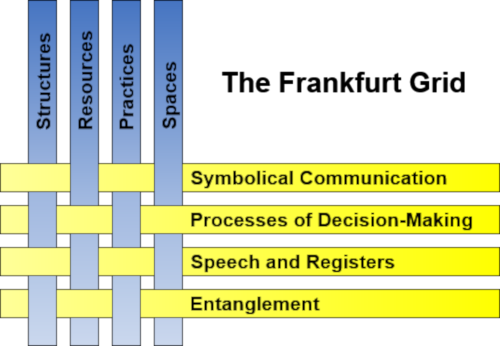The research group Polycentricity and Plurality of Premodern Christianities (POLY), funded by the German Research Foundation (DFG), explores the rich diversity of Christian communities in the premodern world—from the earliest followers of Jesus Christ up to around 1800, across all regions where Christian communities took root. Thus, the point of departure for POLY is the notion of Christianities in the plural: What did it mean, in different times and places, to live as a Christian?
In the first phase of the POLY project (2020–2025), we explored the plurality of premodern Christianities without making normative assumptions about the defining features of Christianity—beyond a shared reference to Jesus Christ. Building on this initial commitment, the second phase of the POLY project (2025–2029) continues to adopt an interdisciplinary, global and cross-epochal perspective, while now foregrounding practices—shared, regularly repeated, and often routinized actions that manifested in specific sayings and doings such as praying, fasting, almsgiving, child-rearing, or observing holidays. We aim to capture religion in verbs.
While varying significantly from context to context, these practices created meaning and cohesion within Christian communities and offer insights into how people understood and shaped their Christian identities. In this sense, Christianities can be seen as communities of interaction: local yet connected groups of people who refer to Jesus Christ, create shared meaning through practices, and in doing so, establish a sense of cohesion that is experienced by the group members and external observers alike.
Another key concept is polycentricity. Christian practices were always oriented towards and around multiple centers—people, places, symbols, or institutions. Jesus Christ stands as the prominent center that all Christian communities had in common, but beyond that, individual Christianities had their own sets of centers. In their endless variety, these centers provided meaning, authority, and structure to Christian life. It is this polycentricity that gave rise to the plurality of Christian groups and vice versa.
The second phase of the POLY project will be dedicated to preparing a three-volume guide entitled “Doing Christianity: A Praxeological Guide to Polycentricity and Plurality of Premodern Christianities”.
The first volume will focus on the micro-level—that is, groups and the practices that constitute them. The second volume will address organizations at the meso-level (such as churches), while the third will examine how these groups and organizations entangle with social formations on the macro-level.
Rather than providing an exhaustive, systematic, or encyclopedic overview of Christian practices, this guide aims to capture the diversity of premodern Christianities by identifying and clustering practices we consider relevant to many, if not all, premodern Christianities. The guide will also examine how these practices developed, intertwined, and evolved across different cultural and historical contexts as well as across different levels of observation (micro, meso, macro).
The goal is to create a reference work that not only highlights the plurality and historical complexity of premodern Christianities, but also invites users to draw new and unexpected connections between Christianities from different times and regions.
We invite scholars of religious life and history (including, but not limited to, Christianities) to reflect with us on the polycentric organisation of religious forms and entanglements around the world, as well as the striking pluralities and tensions found even within the self-styled monoliths of the faith (e.g. the Catholic Church). Working at the crossroads of global and local history, we are hoping to develop new methods and approaches that will radically decentralise scholarship on Christian communities and beliefs from the early medieval period through the nineteenth century.
We are particularly excited about innovative approaches that focus on behaviours, practices, and objects in order to trigger new ways of seeing the plural and dynamic histories of premodern Christianities. During the first stage of this project (2020–2024), we are chiefly interested in accumulating knowledge, identifying approaches, and evaluating relevant methods. Our work will be organized across a grid of main research areas (structures, resources, practices, spaces) and a number of themes and promising approaches (symbolic communication, speech and register, decision making, entanglement). Our progress will be jointly monitored by the Directors of the research group and the Frankfurt fellows.
Our Frankfurt-based research group will facilitate the intellectual collaboration necessary for this project by hosting events such as workshops and conferences. We will also establish a fellowship programme designed to bring junior and senior scholars to Frankfurt for stays of varying lengths. The fellowship funds may include lodging, teaching replacement support, and/or stipends. Further, the Frankfurt Centre will host and support joint research projects conducted by the directors and staff. These projects may range from traditional book projects to the assembly and publication of new online datasets or work with the digital humanities. We look forward to including you in our research community–virtually or physically, as possible–and pursuing this work together!
